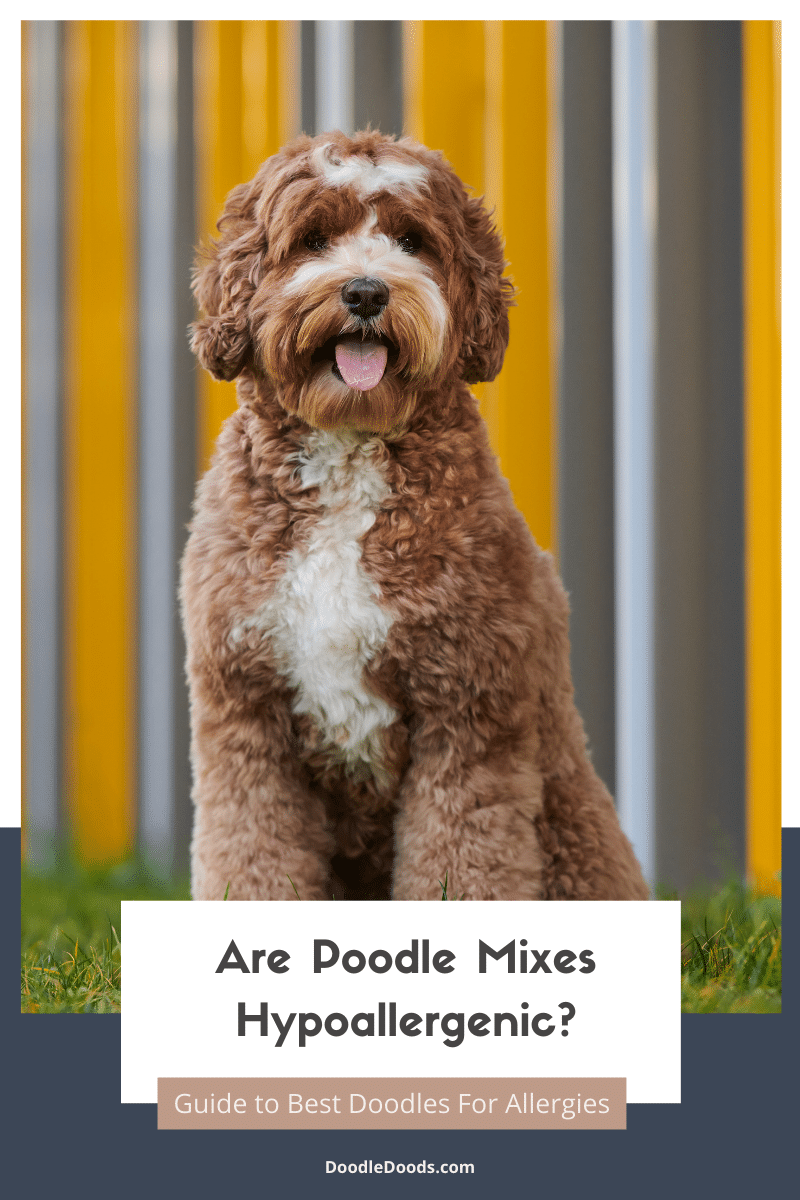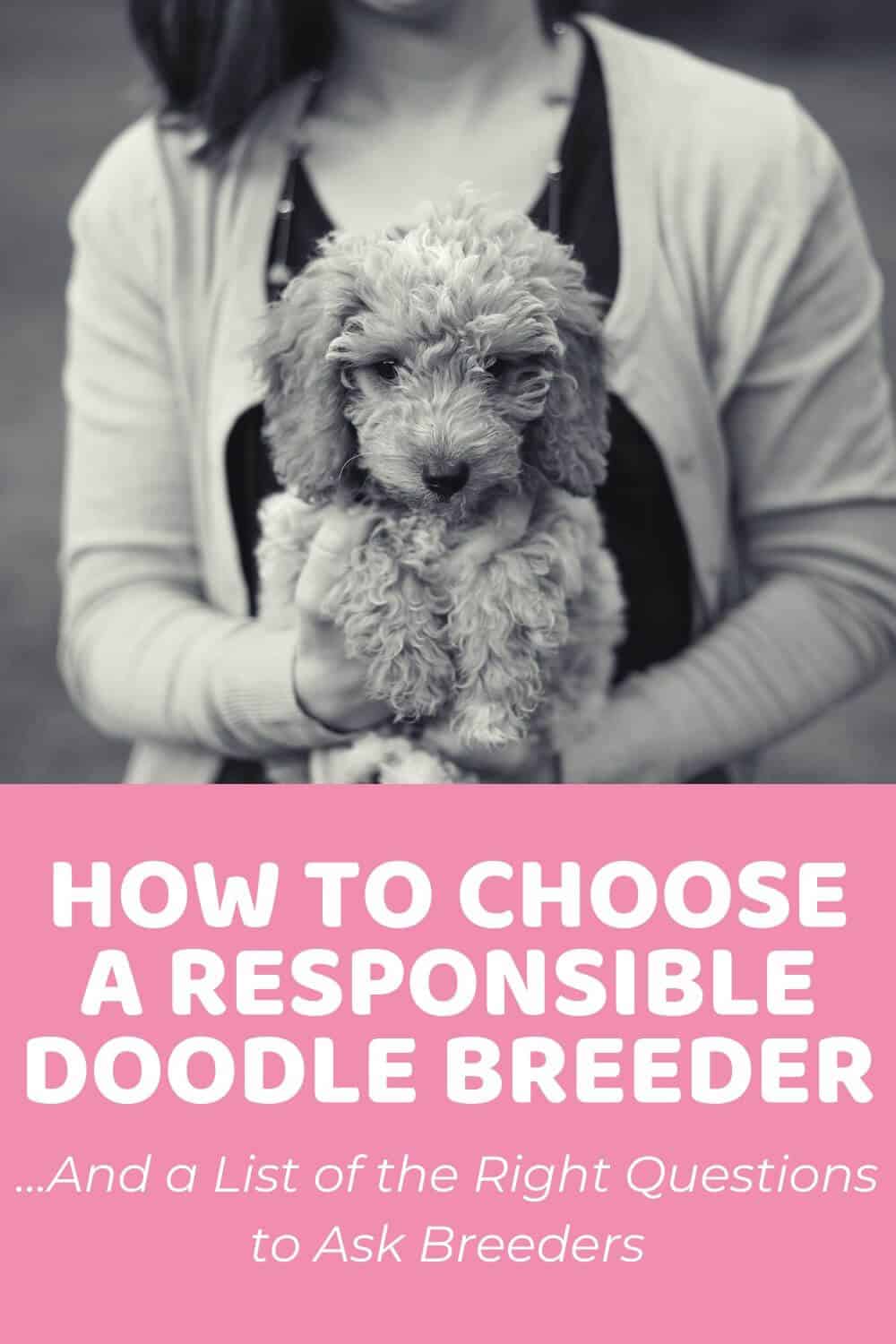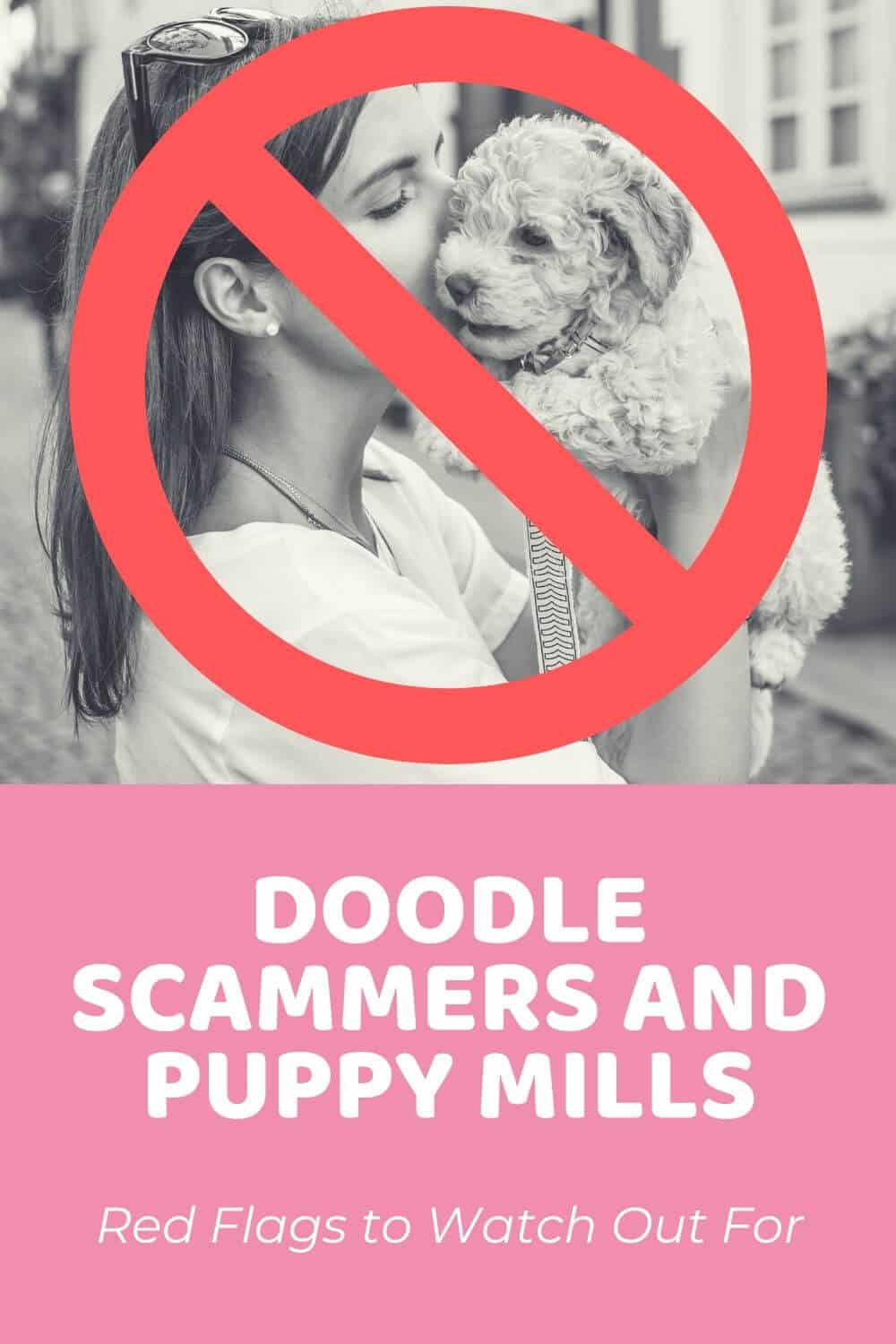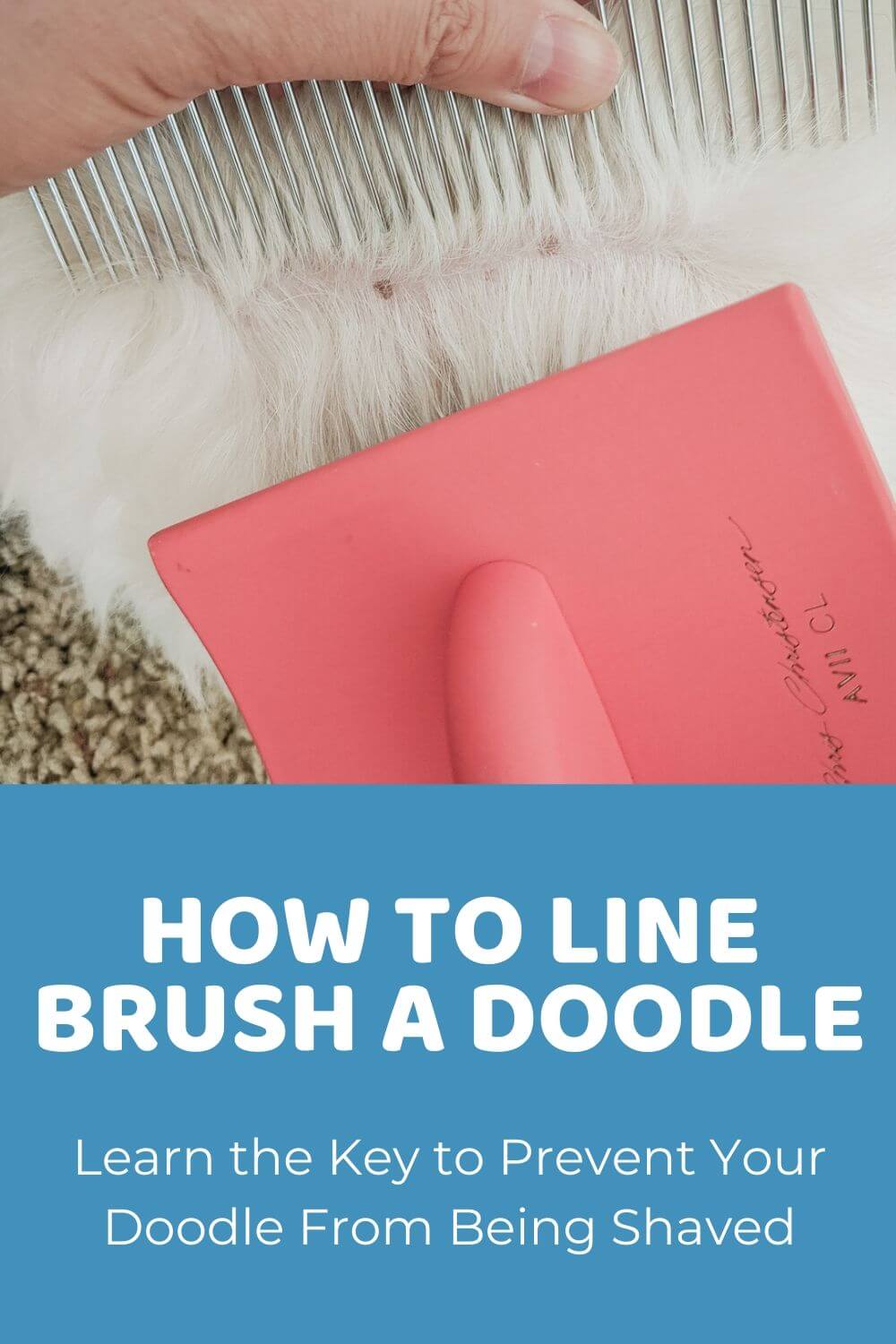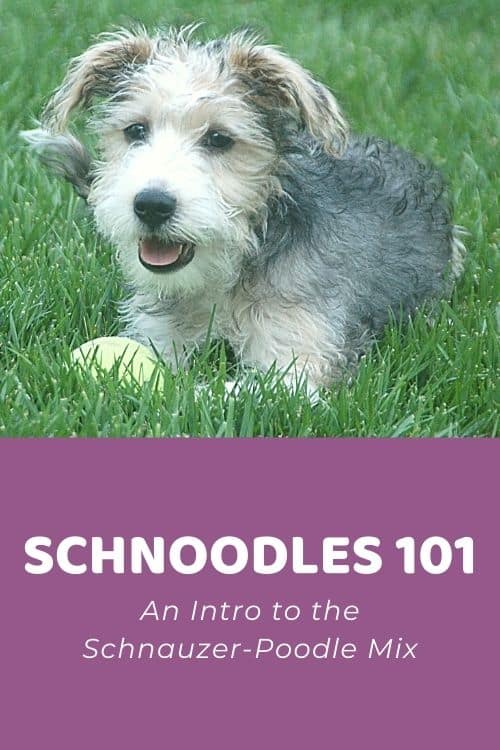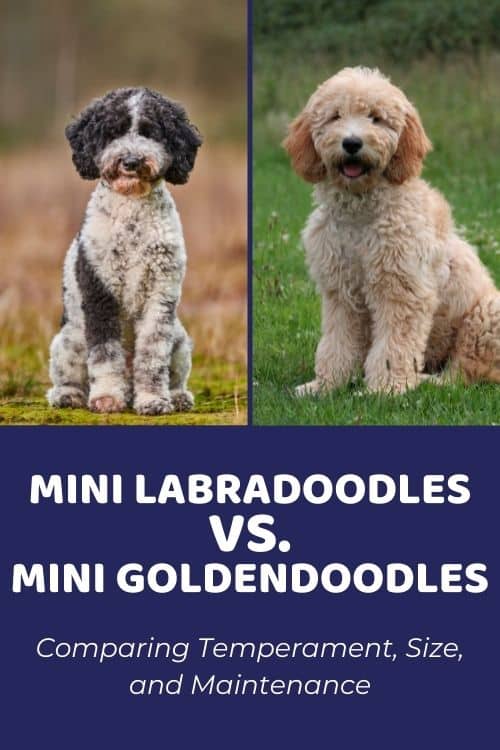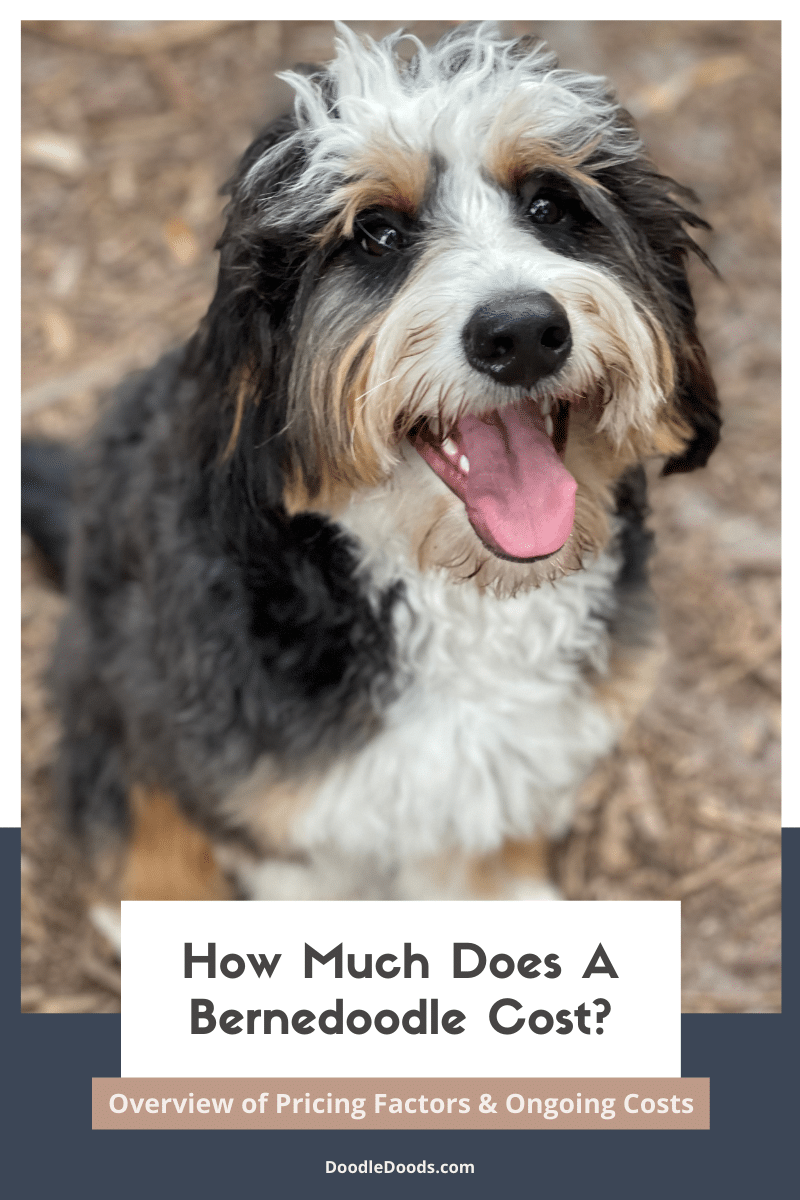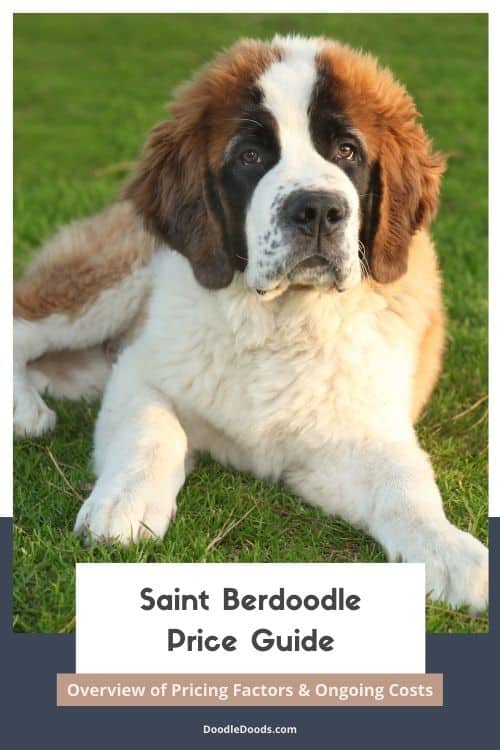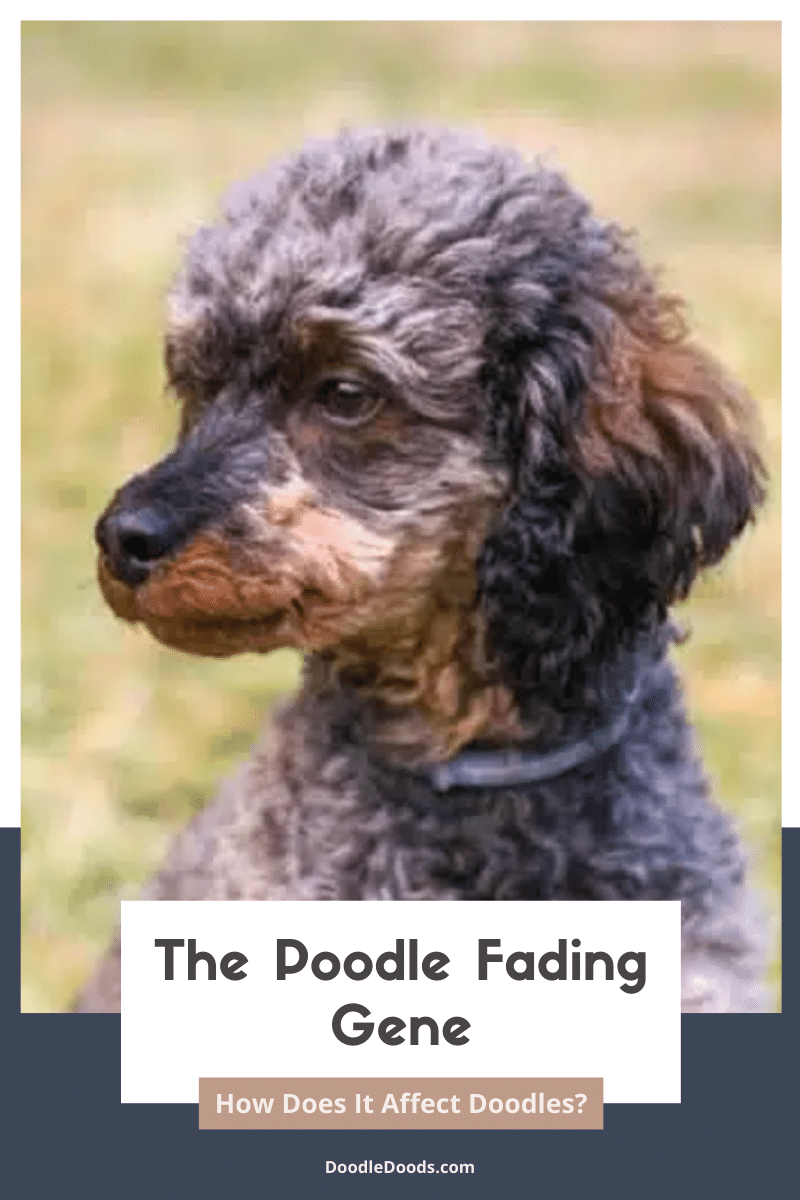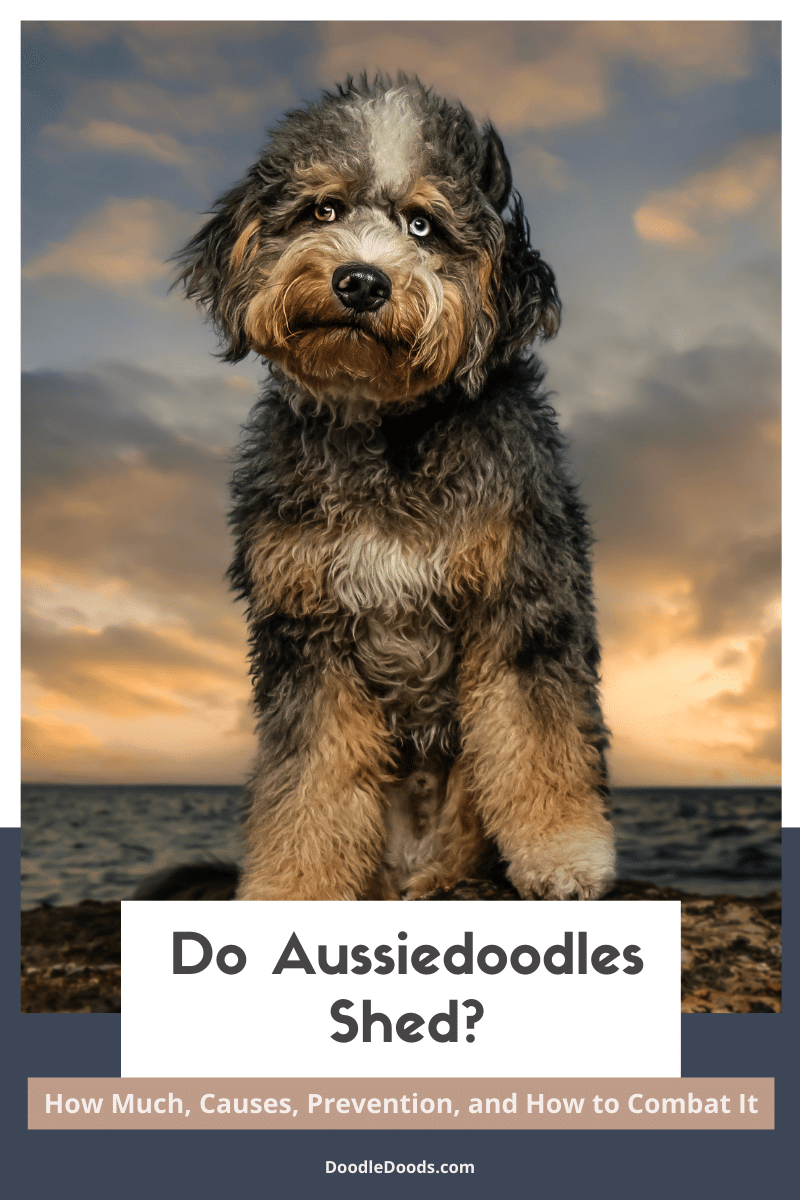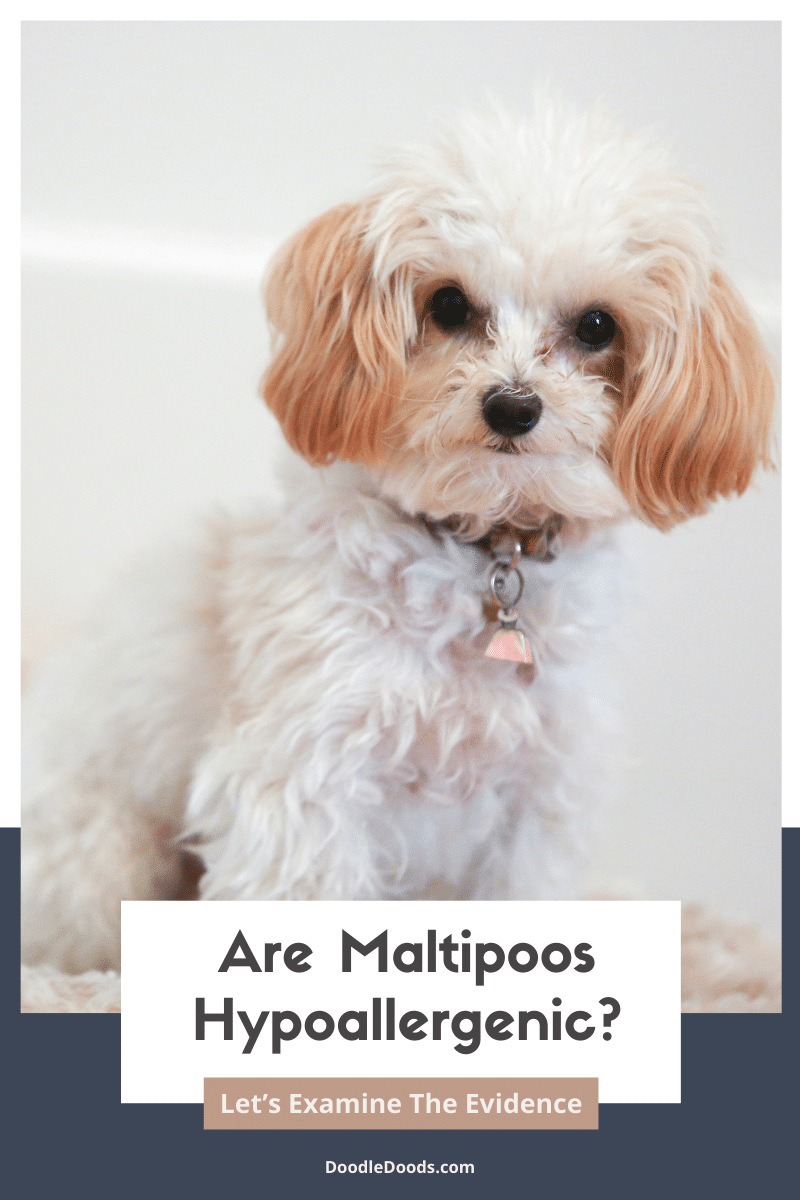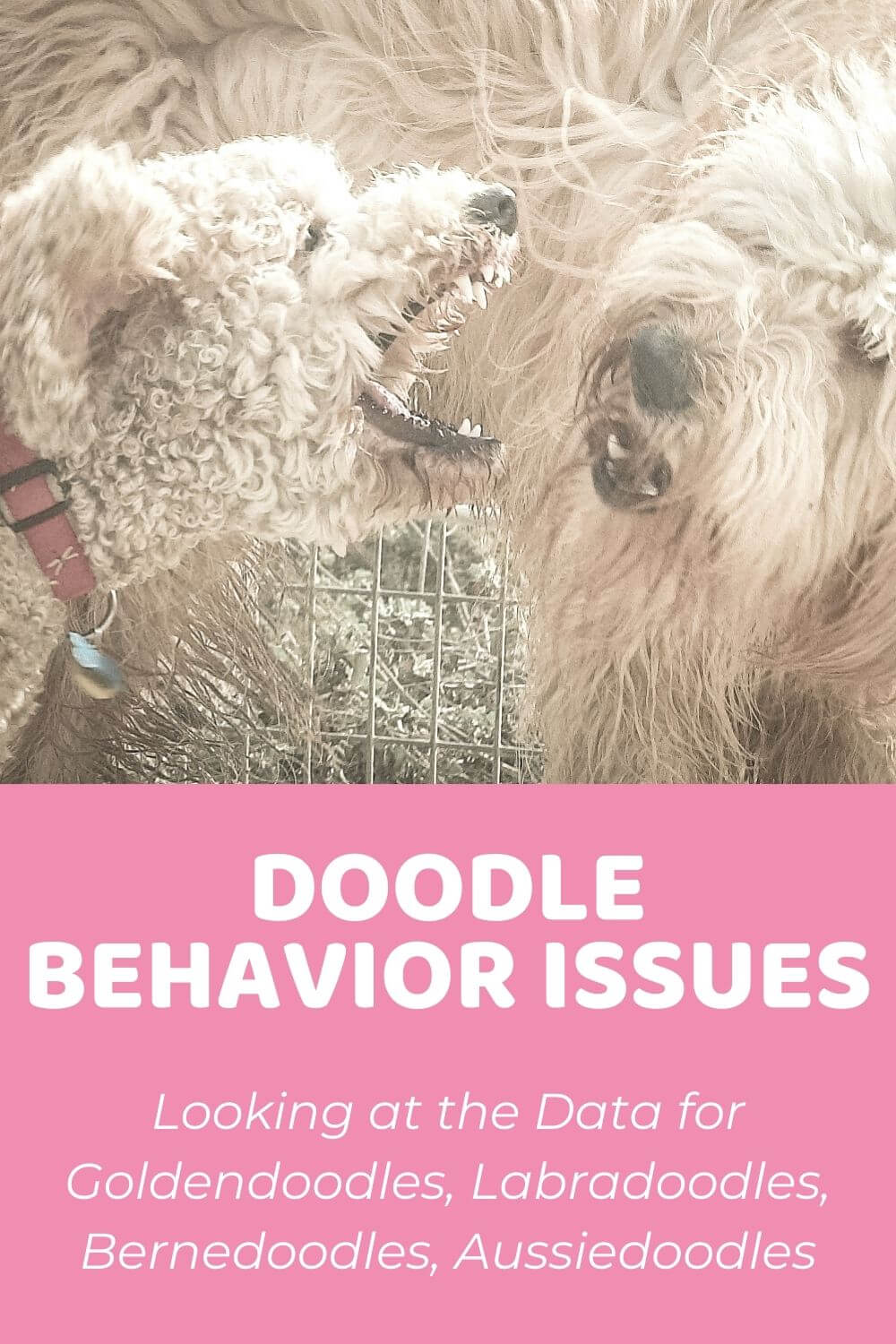You’ve probably heard all about hypoallergenic Poodle mixes and Poodle mixes that don’t shed. After all, that’s why Doodles were first created – to achieve an allergy-friendly companion pet. So, are Poodle mixes hypoallergenic? Do Poodle mixes shed? And what are the best Poodle mixes for allergies? We’re going to answer all of these questions and many more in this very guide. Keep on reading to learn more!
Table of Contents
- Are Poodle Mixes Hypoallergenic: Introduction
- How Do Dogs Cause Allergies?
- What Is A Hypoallergenic Poodle Mix?
- Are Poodle Mixes Hypoallergenic?
- Why Are Poodle Mixes Hypoallergenic Exactly?
- The Pros And Cons Of Hypoallergenic Poodle Mixes
- Top 7 Hypoallergenic Poodle Mixes In 2023
- Which Poodle Mixes Are More Hypoallergenic Than Others?
- Can I Still Get Allergies Even If I Get A Hypoallergenic Poodle Mix?
- How To Reduce The Risk Of Allergies When I Bring A Poodle Mix Home?
- Are Poodle Mixes Hypoallergenic: Frequently Asked Questions
- Are Poodle Mixes Hypoallergenic: Final Thoughts
Are Poodle Mixes Hypoallergenic: Introduction
If you know a little bit about Doodles, you know that they’re praised for their hypoallergenic and low-shedding coats. Indeed, Poodle mixes have gained a status of being hypoallergenic dogs. But, that’s not always the case, and there’s definitely more to it. In this guide, we’re going to discuss some key things on this topic, including whether or not Poodle mixes are actually hypoallergenic.
We’ll also discuss which Poodle mixes are more hypoallergenic than others, as well as some tips and tricks on how to minimize shedding and keep your home as allergy-friendly as possible with a canine pal.
How Do Dogs Cause Allergies?
Interestingly enough, it’s not exactly the dog hair that causes allergies. Instead, it’s the protein found in dog dander, saliva, and urine. However, as dogs tend to lick themselves and their hair is the perfect carrier of those dander, saliva, and urine particles, it only makes sense that heavy shedders also trigger more allergies. The allergens just get left behind everywhere – on your furniture, floors, and floating around in the air.
Essentially, if you or someone you know suffers from dog allergies, it means that your immune system reacts to those protein particles as if they were a threat to be dealt with. So, if the immune system registers a threat, it triggers a reaction to protect the body, even though the allergen itself is actually harmless. As a result, you may experience a runny nose or itchy, red, and watery eyes – that’s your immune system trying to fight off the looming threat.
What Is A Hypoallergenic Poodle Mix?
A hypoallergenic Poodle mix is exactly that – a hybrid breed that consists of the Poodle and another breed of dog. As Poodles are widely praised for their hypoallergenic qualities and low to non-shedding coats, their Doodle offspring also often inherit those traits.
You’ve most likely heard of the famous Goldendoodles and Labradoodles. However, there are a wide range of other Poodle mixes and we can expect more new Doodle breeds emerging in the upcoming years. Basically, the options are endless!
But are all Poodle mixes hypoallergenic? That’s what we’re going to find out next…
Are Poodle Mixes Hypoallergenic?
Indeed, Poodles were first crossed with other purebred dogs to achieve allergy-friendly and low-shedding companion and guide dogs. However, this doesn’t necessarily mean that all Poodles mixes are hypoallergenic. In fact, there’s no such thing as a 100% hypoallergenic dog – even the least shedding pups of them all could trigger allergic reactions in some people!
In addition to that, we have to remember that it’s not just the Poodle genes that we have to take into account. The other purebred parent used in the mix can greatly determine whether or not the puppies will actually turn out ‘hypoallergenic’.
There’s also the matter of genetics. Needless to say, if we’re crossing a Poodle with a Labrador Retriever, there’s a 50-50 chance that the puppies inherit traits from either side of their lineage. On top of that, we have to take into account how the puppies were bred, a.k.a their generation.
Why Are Poodle Mixes Hypoallergenic Exactly?
But why exactly are Poodle mixes hypoallergenic, you may ask? Well, there are a few different reasons for that. As we mentioned above, one of them being genetics and generation. For instance, backcross generations like F1b, F1bb, and F2b are considered much more allergy-friendly, since the majority of their genetic makeup comes from the Poodle. Moreover, the genetics determine which coat types the puppies inherit, and whether or not they’re single or double-coated. Let’s take a closer look.
No Undercoat
Poodles are single-coated dogs, which means that they don’t have a shedding undercoat. In contrast, many other purebred dogs have double coats to keep them warm and safe from environmental elements. However, the undercoat is also what sheds hair, especially during certain seasons.
For this reason, many breeders strive to breed single-coated, hypoallergenic Poodle mixes that don’t have a shedding undercoat. As the undercoat is the one that sheds, the pups are less likely to trigger any allergies if they’re single-coated.
Nonetheless, not all Poodle mixes are single-coated, as it all depends on each puppy’s unique genetic makeup. However, they generally still shed considerably less than their double-coated purebred parents. All thanks to the Poodle genes!
Curly Coat
Another trait that’s inherited from the Poodle parent is the curly coat. But what makes it so special? Well, the thick and textured curls are excellent at trapping in any loose dog hair, dirt, but also dander. This means that those allergy particles are less likely to end up on your furniture and floors.
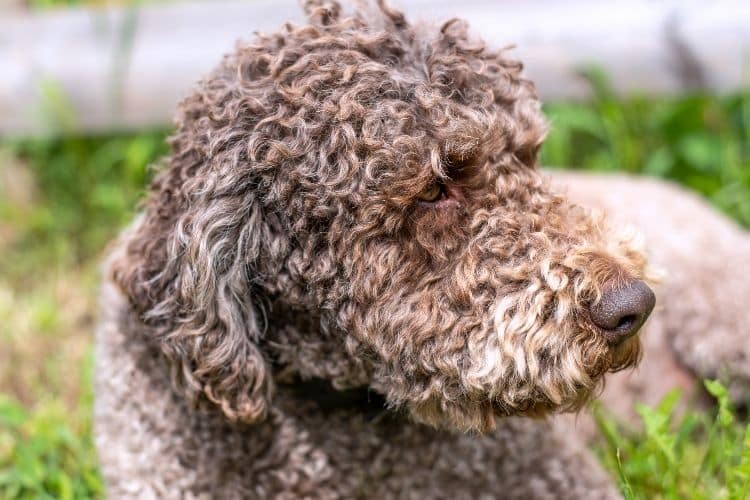
Of course, not all Doodles inherit the curly coat, just as they may not inherit a single coat. It all boils down to their genetics, generation, and what other purebred parent is used in the mix. Still, we can expect Poodle mixes to shed less and be more allergy-friendly than the purebred double-coated breeds. But if you do suffer from severe dog allergies, your goal would be to either opt for a Poodle mix that combines two single-coated breeds, or carefully look for a backcross generation with a single, curly coat.
The Pros And Cons Of Hypoallergenic Poodle Mixes
Poodle mixes are hypoallergenic, low-shedding, and overall just wonderful pets! However, there are also downsides to take into account before committing to the next 10 to 15 years taking care of one. Let’s now take a look at some of the pros and cons of Poodle mixes so that you can make a well thought out, informed decision before bringing home a pooch.
Pros Of A Hypoallergenic Poodle Mix
Great Health & Long Life Expectancy
One of the many great things about hypoallergenic Poodle mixes is that they’re generally very healthy dogs. As Poodles have a rather long life expectancy, this trait is often also carried onto their Doodle offspring. But that’s not all!
Hybrid breeds are also thought to be healthier than their purebred parents because of something called hybrid vigor. Hybrid vigor indicates that hybrid breeds inherit superior qualities and genetics from their purebred parents, as they have a more diverse genetic makeup.
You may wonder – do Poodle mixes have health issues? Of course, Poodle mixes are still at risk of certain genetic conditions that are common in their purebred parental breeds. However, if they were bred responsibly and the parents were extensively health screened beforehand, the likelihood of those health conditions is much smaller. That’s why choosing a responsible Doodle breeder is so important!
Gorgeous Looks
Of course, we cannot forget the gorgeous looks of Poodle mixes. Their fluffy, shaggy coats are just to die for – they look like absolute real life teddy bears! And those cute, floppy ears?! Just everything about them is so freaking adorable.
Although the main appeal of Poodle mixes is their hypoallergenic and low shed coats, their looks aren’t any less important. We’re definitely biased here, not going to lie, but there sure is something about those signature Doodle coats and the cuteness these pups ooze.
Of course, it’s not all fun and games with Doodles. To keep those coats looking beautiful and healthy at all times, you also must take good care of them. But more on that in a moment…
Excellent Temperaments
Poodle mixes are also well-known for their excellent temperaments and personality. Not only do they make wonderful companions, many of them can also become great therapy and service dogs. They generally have high levels of intelligence, a trait that’s inherited from the Poodle parent. In fact, Poodles are the world’s second smartest dog breed, so it’s no surprise that all Poodle mixes are widely praised for their smarts and wits. They typically respond well to positive reinforcement training, especially when tasty treats are involved. And many Doods make excellent pets for even first time dog owners!
Poodle mixes also tend to be rather outgoing and affectionate. Of course, each Doodle breed inherits their traits and characteristics from both purebred parents, so it also depends on the other purebred parent. But all in all, Poodle mixes tend to be wonderful companions and excellent family pets. It goes without saying that early socialization and training are both key in raising well-rounded and confident dogs. But if you put in the effort, you’ll surely have the most amazing little pal for many years to come.
Cons Of A Hypoallergenic Poodle Mix
Expensive To Adopt
We cannot lie, adopting a Doodle puppy is not exactly cheap. Poodle mixes often cost significantly more compared to their purebred parents. That’s because reputable breeders conduct health and DNA testing on their breeding dogs, and they’ve extensively researched the best breeding practices and continuously educate themselves on the most up-to-date whelping and breeding methods.
Another thing you should keep in mind is the breeder’s reputation and experience. As designer breeds like Poodle mixes have become increasingly popular in recent years, we’ve also seen a huge increase in Doodle scammers and puppy mills wanting to make a quick buck in the business. Sometimes they attract unknowing customers with below average prices, other times they blatantly charge ridiculous amounts because reputable breeders do so.
Above all, it’s vital you do your due diligence and know exactly what to look for in a reputable Doodle breeder. Although you may pay more up front when adopting from a reputable breeder, you’ll much less likely have to spend tons of money on vet bills later on.
High-Maintenance
Another thing to keep in mind with Poodle mixes is that they are rather high-maintenance when it comes to their grooming needs. As we like to say, with great power comes great responsibility.
There’s no doubt that those fluffy coats look so gorgeous and they’re extremely practical in terms of their hypoallergenic qualities. However, they also require lots and lots of upkeep to actually keep those coats healthy and looking well-groomed. Think of daily brushing sessions, regular bathing, and routine hair trims, to name a few activities in their vast grooming routines. We’ll discuss more about grooming later on in this guide, so don’t go anywhere just yet.
Top 7 Hypoallergenic Poodle Mixes In 2023
Cockapoo
The Cocker Spaniel-Poodle mix is one of the most adorable small-sized Doods out there. Although they come in a small package, they have a lot of personality and charm. They’re fun-loving, affectionate, and overall just wonderful pets for families and singles alike. What’s more, Cockapoos come in a variety of sizes – from Teacup and Toy to Maxi Cockapoos, there’s a suitable choice for almost anyone!
Even though the Cocker Spaniel is a double-coated breed, Cockapoos still greatly benefit from their Poodle heritage. These pups are often low-shedding. But, of course, if you struggle with severe allergies, a backcross generation would be a safer choice.
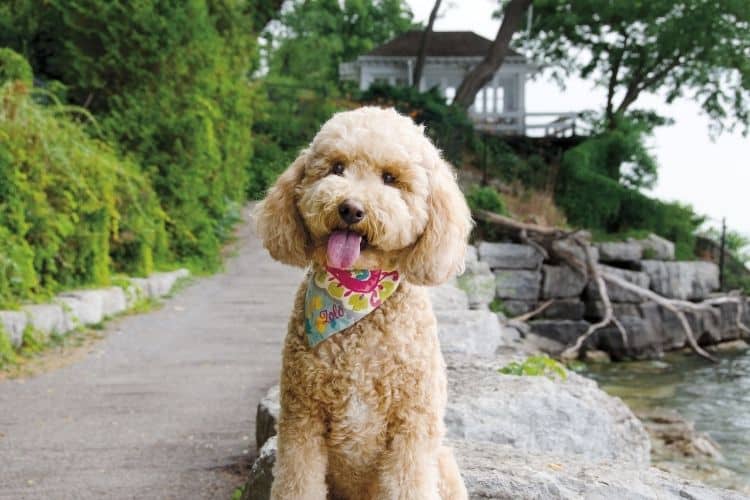
Goldendoodle
Who doesn’t know one of the most famous hypoallergenic Poodle mixes of them all – the Goldendoodle?! The Golden Retriever-Poodle mix is well-known for its happy-go-lucky personality and insanely cute looks. You can either get a Standard Goldendoodle that’s similar in size to a purebred Golden Retriever, or instead opt for a Mini or Toy Goldendoodle that’s much better suited for apartment-dwellers.
As the Golden Retriever is a double-coated breed that can shed considerable amounts of hair, backcross generations might be more sensible if you’re after a very minimally shedding pup. But regardless of the size and generation you choose, you’ll be guaranteed to have the best, most adorable pal by your side for many years to come.
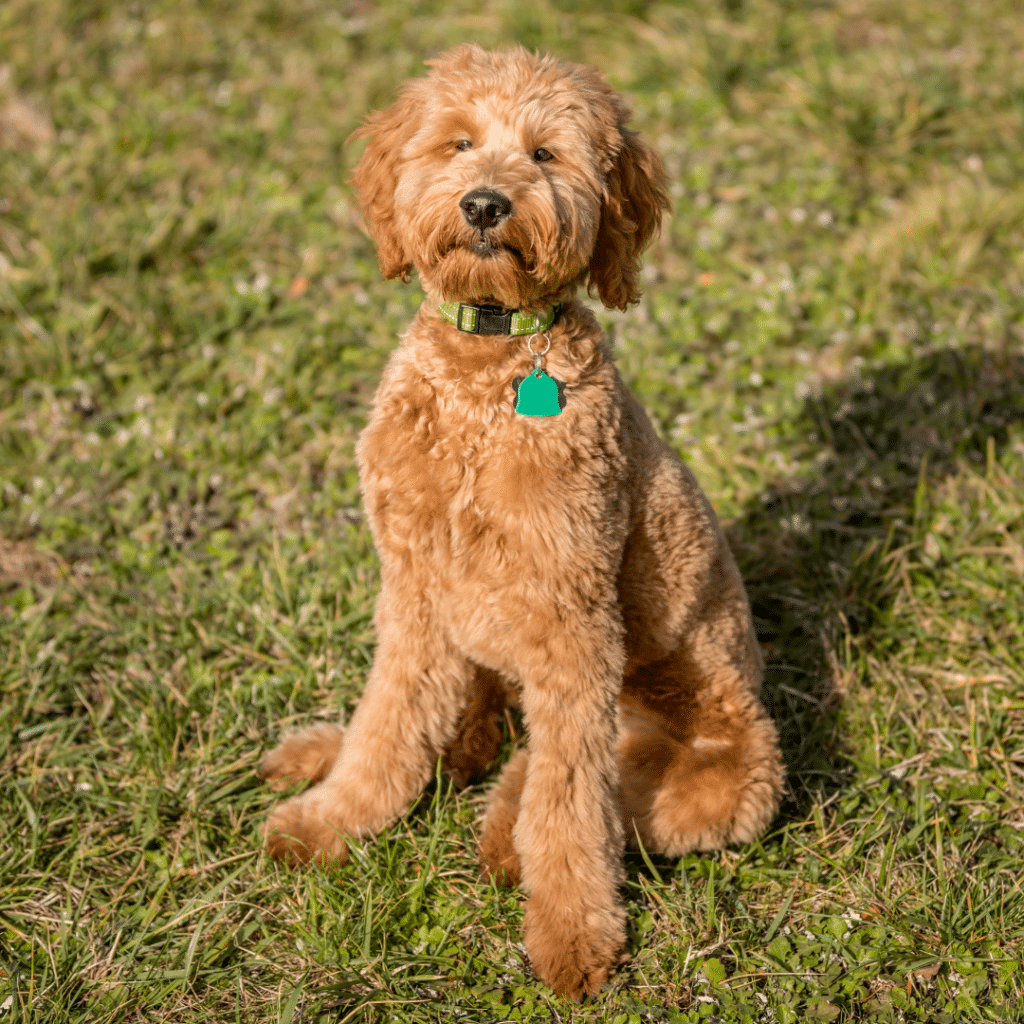
Yorkiepoo
If you’re looking for Poodle mixes that don’t shed, then the Yorkiepoo might just be the one for you. The Yorkshire Terrier-Poodle mix is one of the best choices for people with severe dog allergies, as both Yorkies and Poodles are single-coated breeds.
Just like the purebred Yorkie parent, Yorkiepoos are fun-sized little pals that love spending time with their humans above all else. But don’t let their small size fool you – these pups pack a lot of personality in that tiny package.

St. Berdoodle
The Saint Berdoodle is a true gentle giant, just like its Saint Bernard parent. Although they may not be as well-known as Goldendoodles or Labradoodles, the Saint Bernard-Poodle mix has become increasingly popular in recent years.
Although the purebred Saint Bernard is a rather humongous dog, the Saint Berdoodle offers a bit more variety. In addition to the giant-sized Standard Saint Berdoodles, there’s also the slightly smaller Mini Saint Berdoodle variation.
In terms of their shedding and hypoallergenic potential, these pups also benefit from their Poodle heritage. But again, backcross generations would be a safer choice for allergy sufferers, as purebred Saint Bernards are known to be quite heavy shedders.
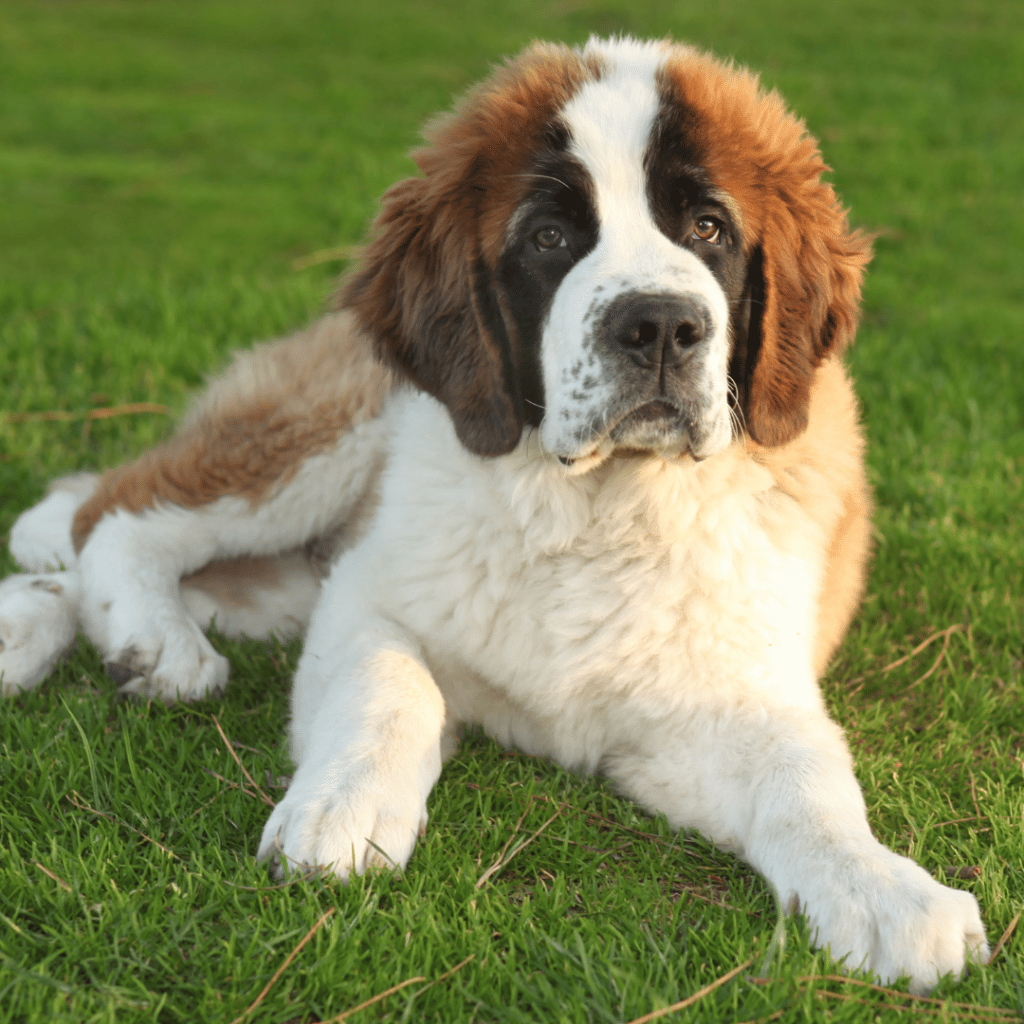
Labradoodle
Another one of the OG hypoallergenic Poodle mixes is the Labradoodle. The Labrador Retriever-Poodle mix is well-known for its high levels of intelligence, energy, and insanely sweet temper. They also look ridiculously cute, so it’s no surprise why Labradoodles are so in-demand.
As the Labrador Retriever is a double-coated breed, it’s not uncommon for some Labradoodles to shed a little bit of hair. The more traits they inherit from the purebred Lab, the more likely they are to shed. However, as reputable breeders often strive to breed minimally shedding Labradoodles, you can rest assured knowing that these Doods likely won’t shed as much as their purebred Labrador parents.
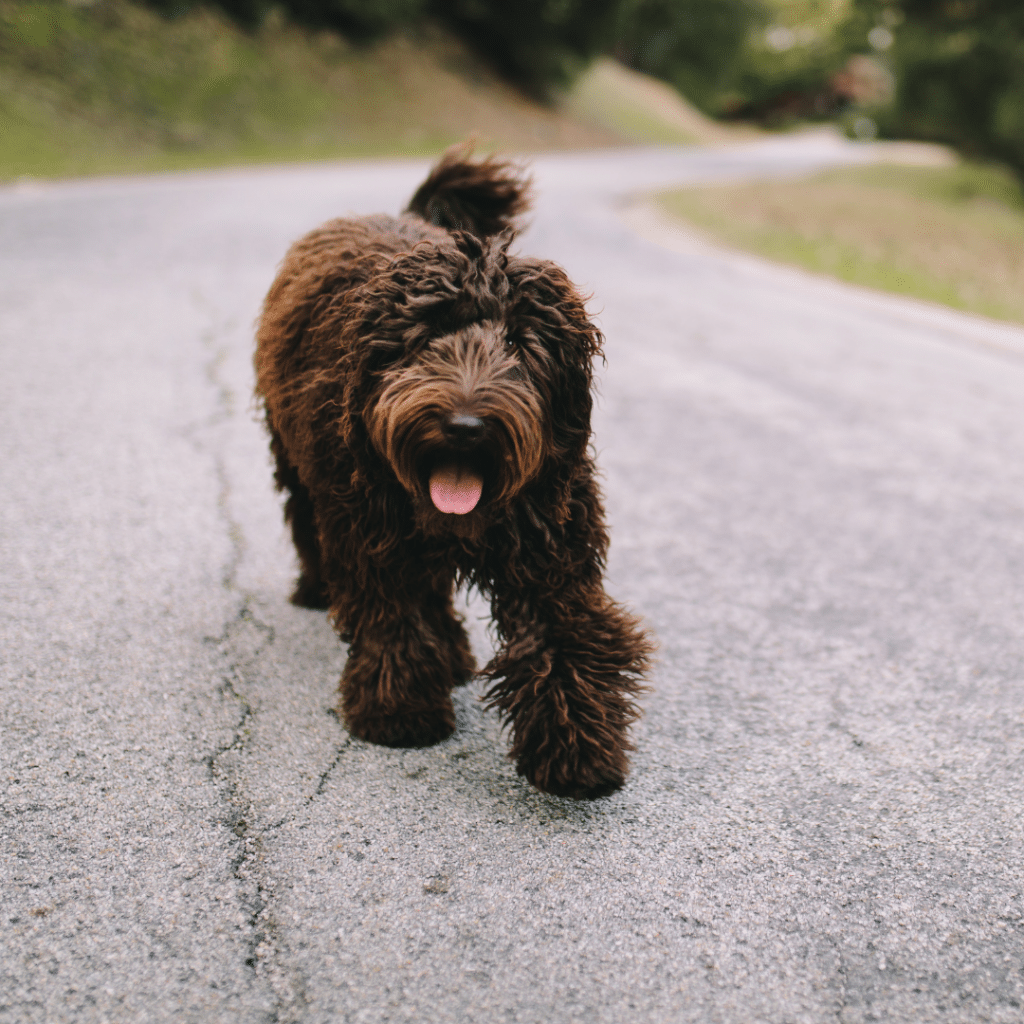
Schnoodle
The Schnoodle is a hybrid cross between the Schnauzer and Poodle. Both of these purebred parents come in three different sizes, so there’s a Schnoodle pup suitable for almost anyone. The smallest Toy Schnoodles can weigh as little as 4 pounds, whereas the largest Giant Schnoodles can weigh up to 85 pounds once fully-grown!
Schnoodles tend to be active and energetic pups that enjoy all sorts of outdoor activities. Like other Poodle mixes, they’re highly intelligent, loyal, and affectionate, making them wonderful pets for singles and families alike.
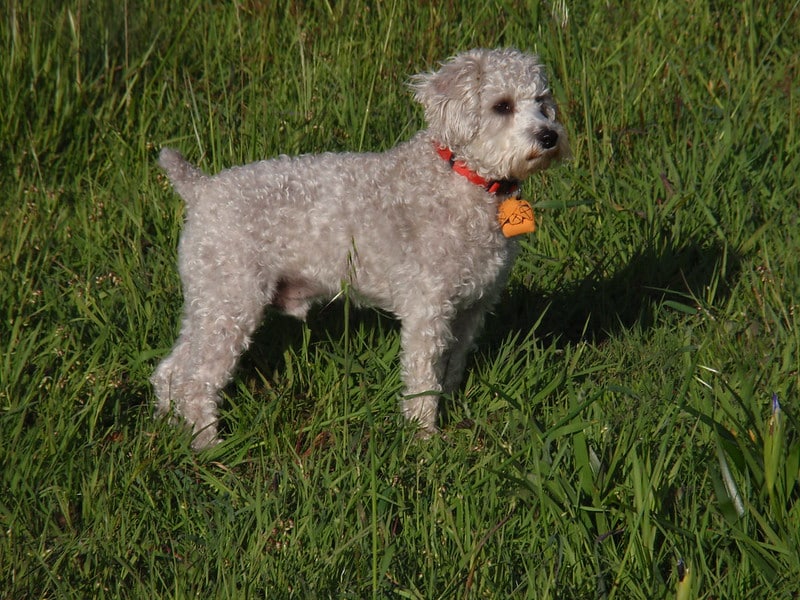
Sheepadoodle
If you’re all about big, fluffy, and gentle Doods, then you can’t go wrong with a Sheepadoodle. This hybrid cross between the Old English Sheepdog and Poodle has a heart of gold that matches its enormous size.
If you’re set on getting the most hypoallergenic Poodle mix, then we recommend you look for backcross generations of the Sheepadoodle. Old English Sheepdogs can shed rather heavily, so it would be wise to opt for one that inherits most of its traits from the Poodle parent.
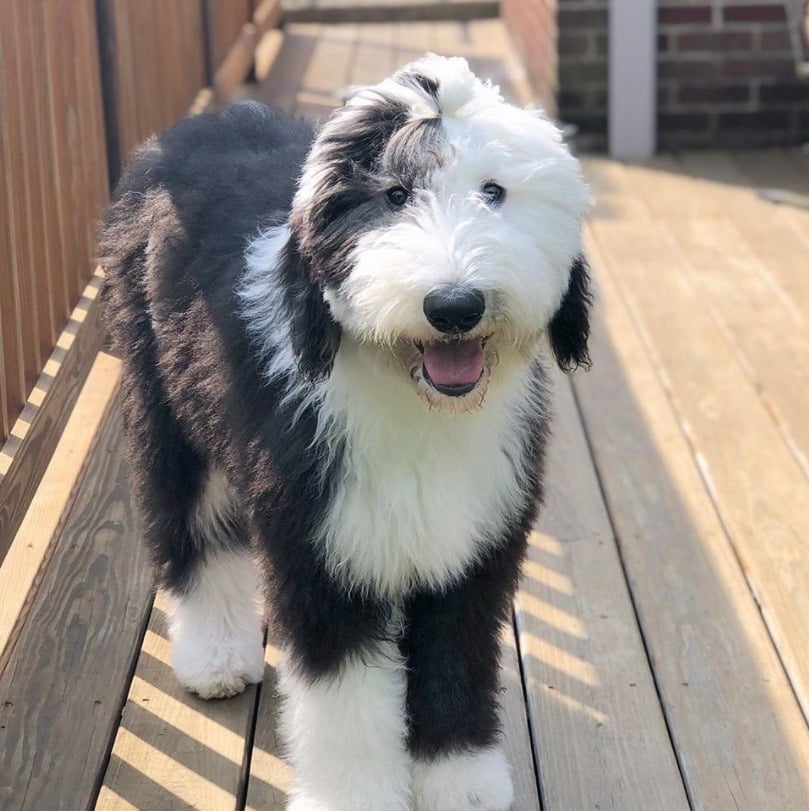
Which Poodle Mixes Are More Hypoallergenic Than Others?
As we know by now, there’s always some uncertainty involved when it comes to hybrid breeds. If we’re combining two very different purebred dogs, the outcome may lean on either side. So, if you’re looking for a hypoallergenic Poodle mix, the safest bet would be to choose one where both purebred parents are single-coated breeds.
Some of the most well-known single-coated breeds in addition to Poodles include the Maltese and Yorkshire Terrier. Therefore, if you’re looking for a Poodle mix that’s going to shed as little as possible, a Yorkiepoo or Maltipoo would be an excellent choice.
Of course, other Poodle mixes are also widely praised for their low-shedding coats and hypoallergenic qualities. However, these traits may not be guaranteed in certain generations, especially first-generation litters. If you’re looking for a Doodle pup that sheds very minimally, we recommend you consider getting a backcross generation, such as the F1b, F1bb, F2b, or F2bb, where the majority of the genetics come from the Poodle.
Can I Still Get Allergies Even If I Get A Hypoallergenic Poodle Mix?
Indeed, even those technically hypoallergenic Poodle mixes could potentially trigger allergies. As we discussed earlier, it’s not the dog hair that causes allergies, but the proteins found in dog saliva, dander, and urine.
Dogs tend to lick themselves, chew on stuff (and your hands!), and dander particles can potentially fall onto the ground or float around in the air. Therefore, if you’ve got a severe dog allergy, even those hypoallergenic breeds may not be suitable for you. Still, the likelihood of severe allergic reactions is much smaller if you’ve got a Poodle mix.
How To Reduce The Risk Of Allergies When I Bring A Poodle Mix Home?
Fortunately, there are a few ways you can minimize shedding and prevent allergies. Below you’ll find some simple lifestyle hacks that can go a long way in preventing those allergic reactions, keeping both you and your precious pal healthy and happy.
Opt For High-Quality Dog Food
One of the best things you can do for both you and your pup is to feed them a high-quality, nutritionally balanced dog food formula. Poodle mixes are prone to allergies, sensitivities, and intolerances, so it’s not uncommon for them to struggle with certain ingredients in their food. But once they develop a food allergy, for example, it could potentially lead to excessive shedding. And this in turn can start triggering your allergies, as the dander and saliva particles are now left behind everywhere.
We also recommend you choose a dog food formula that’s made with real, high-quality ingredients. You should also avoid any unnecessary filler ingredients, flavors, and preservatives, as all of these are known to trigger allergies in dogs. You can also look into formulas that have extra omega-3 fatty acids to promote good skin and coat health – this will also help minimize the risk of shedding and nourish your pup from inside out.
Lots & Lots Of Grooming
Grooming your Dood isn’t just about vanity, it serves a very practical function by keeping your pup healthy and also minimizing the risk of shedding. If you’re considering getting a Doodle puppy, you have to take into account the following grooming activities:
- Daily brushing sessions to prevent matting and minimize shedding;
- Regular haircuts, around every 4-10 weeks or so;
- Regular bathing, depending on your dog’s activity levels, lifestyle, and skin conditions. Usually around every 1 to 8 weeks.
Although daily brushing may seem so tedious at first, it’s actually the easiest thing you can do to prevent your dog’s hair becoming matted. This is also an excellent way to reduce any potential for shedding. If you constantly brush out any loose, dead hair from the fur, you’ll less likely find it on your furniture and floors.
Similarly, regular bathing is one of the best ways to keep your Dood’s coat and skin healthy. Of course, be sure to choose the right shampoo based on your dog’s unique needs. For instance, if they have sensitive skin, you’ll find a hypoallergenic or soothing shampoo better suited for your pup. Again, if the shampoo contains any irritating ingredients, it could lead to excessive shedding – something we’re trying to avoid!
Keep Your House Clean
Lastly, don’t forget to keep your house tidy and clean at all times. This includes weekly (or more frequent) vacuuming sessions, mopping the floors, and regularly washing all soft textiles with hot water. Remember, if you get rid of the allergens, they won’t be able to trigger your allergies.
Another excellent tip would be to invest in an air purifier. While regular cleaning will keep your surfaces clean, an air purifier will get rid of those invisible particles floating around in your home. What’s more, a simple, yet effective trick is to wear a face mask every time you clean or dust the house. This way, allergy particles are less likely to get into your airways.
Are Poodle Mixes Hypoallergenic: Frequently Asked Questions
Indeed, Poodle mixes are considered hypoallergenic, as the purebred Poodle is one of the best breeds for allergy sufferers. Poodles are single-coated dogs with curly coats, which means that they shed very minimally, if any at all. That’s also why Poodle mixes were first created decades ago – to achieve hypoallergenic and low-shedding companions and guide dogs.
Generally all Poodle mixes are considered hypoallergenic. However, this doesn’t necessarily mean that they actually are. It all depends on the other purebred parent used in the mix, the puppies’ genetics, and also generation. The most hypoallergenic Poodle mixes are typically those where both purebred parents are single-coated breeds.
It’s true that some Poodle mixes may still shed some hair, as it all depends on the Poodle mix, and the puppies’ genetics. For instance, if the other purebred parent is a heavily shedding double-coated breed, it’s not uncommon for the Doodle puppies to shed some hair. If your goal is to find the lowest shedding Poodle mix possible, we recommend you look into backcross generations.
Best Poodle mixes for allergies include those with both purebred parents having single coats. However, even if one of those purebred parents is double-coated, they’re still likely going to shed much less than the purebred parent.
Needless to say, the main benefit of Poodle mixes is their hypoallergenic and low-shedding coats. They also tend to be highly intelligent, just like the Poodle parent. This makes Doodles excellent pets even for first-time dog owners, as they’re often quite easy to train.
Are Poodle Mixes Hypoallergenic: Final Thoughts
Although there’s no such thing as a 100% hypoallergenic dog, Poodle mixes do come pretty close. That’s mainly thanks to the Poodle genetics, as Poodles are widely praised for their allergy-friendly, curly coats. However, it’s also vital that you consider the other purebred parent used in the mix, and also carefully consider which generation you’re going to adopt. Generally speaking, backcross generations are the most hypoallergenic, as the majority of their traits are inherited from the Poodle’s side of the lineage. If you’re keen on adopting a Doodle puppy from a breeder, they’ll likely be able to help you make that decision. Nonetheless, this doesn’t guarantee that a Doodle pup won’t trigger any allergies, as the actual allergy triggers are the proteins found in dog dander, saliva, and urine. So, if you’re severely allergic to dogs, it’s best if you err on the side of caution.
Want to Learn
DIY Doodle Grooming?
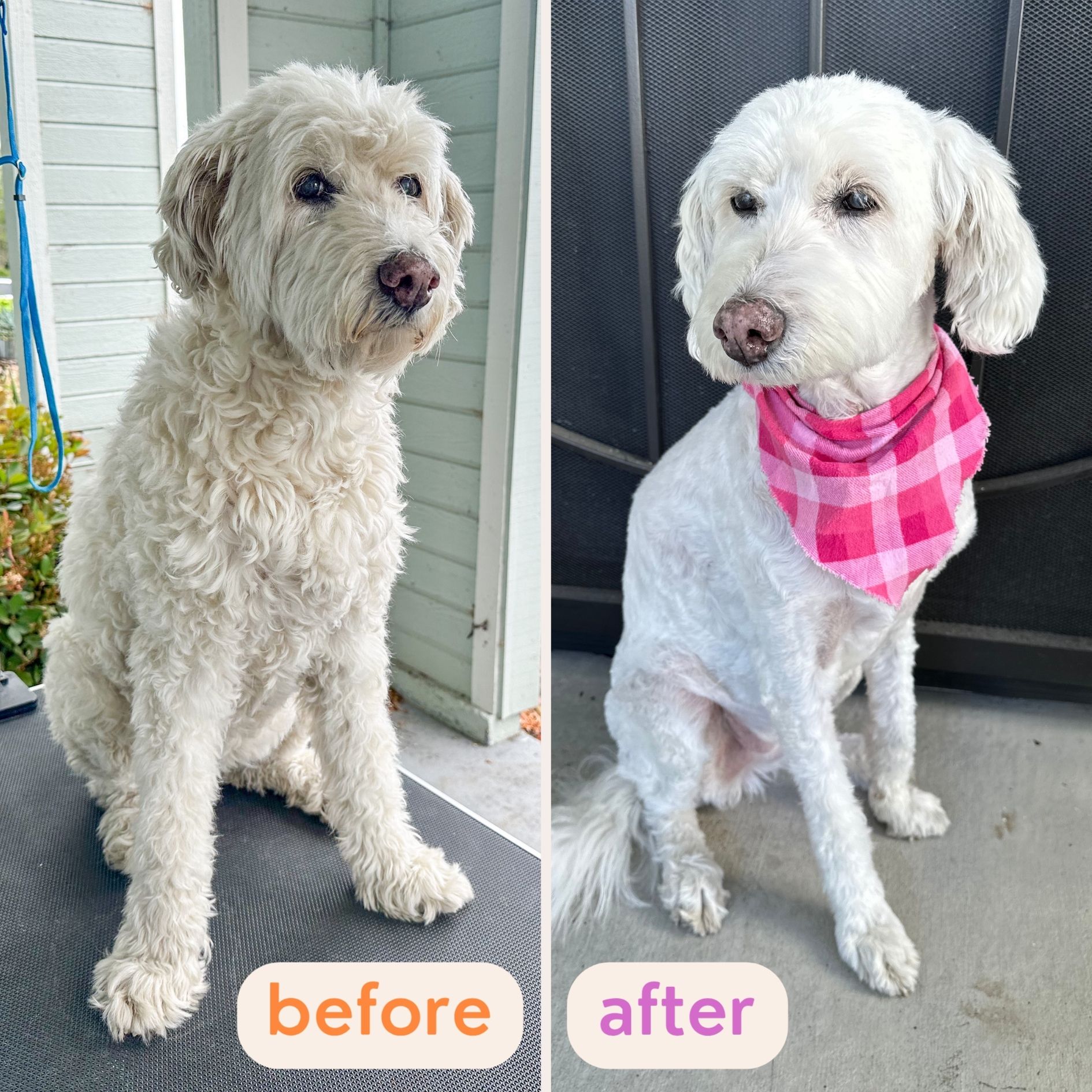
 “Every concern and question I had now has clear, practical solutions.” – Paula D.
“Every concern and question I had now has clear, practical solutions.” – Paula D.
 “These lessons have provided tremendous amounts of information.” – Steve B.
“These lessons have provided tremendous amounts of information.” – Steve B.
 “Buy the course and complain about how easy it is!” – Chris S.
“Buy the course and complain about how easy it is!” – Chris S.
Learn How To Groom Your Doodle At Home…
Safely…And Without Confusion:

